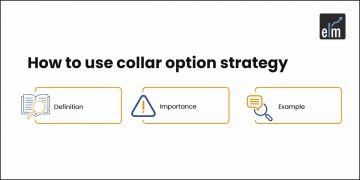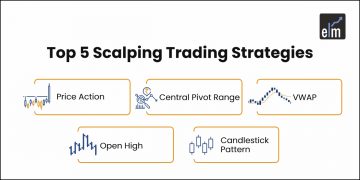Let’s understand margin for options trading and settlement.
The investors who buy option contracts are required to maintain the margin requirements on the position.
Based on the position taken by the investor, the margin requirement varies.
Traditionally investors need to deposit 100% of the options premium in 2 business days after settlement but it has evolved gradually over the period.
We know that option buyer can have a limited loss or unlimited profit.
On the other hand, option seller faces a situation of limited profit or unlimited losses.
| Table of Contents |
|---|
| Margin for options buyer |
| Margin for options seller |
| Margin for options example |
| Types of Margin |
| Options Margin calculator |
| Options Settlement |
| Bottomline |
Thus option buyer in order to enjoy the upside or the downside as the case may be, and hence has to pay a certain premium to the option seller.
While option seller is required to pay margin money in order to create this position.
Margin money is often measured as a % of the total value of the open position.
Option buyer can have a limited loss or unlimited profit thus required to pay the premium to enjoy the upside or the downside.
On the other hand, option seller may have a situation of limited profit or unlimited losses and hence they need to deposit margin.
Margin for options buyer
For the buyer, they need to pay only premium and not the full price of the contract. The exchange transfers this premium to the broker of the option seller who in turn transfers it to the client.
So the minimum loss to the option seller is restricted to the premium amount.
Margin for options seller
The option seller, on the other hand, has a potential for unlimited loss.
Thus the seller has to deposit margin with the exchange as a security in case of huge loss due to adverse price movement in the option price.
This amount is levied on the contract value and the amount is denoted in % term as dictated by the exchange.
Also Read: Guide to Options – To hedge the investment position
Usually, this % value is created based on the volatility of the price of the underlying asset and the option. Higher the volatility, higher is the premium.
Margin for options example
Mr. A sells 1 lot (lot size is 600 shares) of call option of Infosys. The premium received is Rs 10 for the strike price of 970 and we assume a margin of 20%.
The option position stands at 582000 (600 x 970). Thus the margin amount is Rs 116400 (582000 x 20%).
Types of Margin
Initial margin– It requires the minimum amount of capital or equity that an investor must provide during purchase.
It is done to prevent over speculation and excessive trading.
It is that margin requirement which investor talks about when dealing with margin trading.
Until there is enough margin in the account i.e. greater than or equal to the initial requirement, the investor can freely use his account.
However, if the margin goes below the initial margin requirement, it will lead to a situation of restricted account which requires investors to bring back to the initial level
Maintenance margin– It is the minimum margin amount which an investor must maintain at all time in the margin account.
Say if the margin goes back below the maintenance margin level, the investor will get a call initially to remedy the position or else the broker has an authority to sell the required equity to bring back to the initial level.
Learn from Experts : Option Trading Strategies
It protects both investor and the brokerage house.
The broker does not have to absorb excessive investor losses while the investor is in a situation to avoid being totally wiped out.
Options Settlement
An option can be settled either through physical settlement or through cash. In case of physical delivery, options require actual delivery of the underlying asset.
Also Read: A Quick Comparison Between Cash and Physical Settlement
Whenever we sell or purchase any option, we can exit before the expiry date by taking an offsetting position in the market or we can hold the position till the maturity date where the clearinghouse settles the trade.
Bottomline
Both margin and settlement are an important topic in options. One should be very clear with the margin requirement before entering into a trade in options. An option is a very effective hedging tool but it is little complicated.
Read more blogs on blog.elearnmarkets.com.

Also, visit Stockedge to check out fundamental and technical scans of Financial Markets.







Why an option buyer has to pay the margin? It is the option writers who pay the margin.
Hello Ranjan,
Thank you for your comment.
The options buyer has to pay only the premium and not the full price of the contract at the time of entering the contract to the exchange via their brokers.
The option seller, on the other hand, has to deposit a certain portion as margins to the exchange.
You can read more blogs on derivatives.
Happy Reading!!
Hi
What happens with the margin placed for option selling at the end of expiry or square off ? Do we get both margin and profit earned and or net of losses?
Hi Amit,
For further details on margin, you can refer to this link: https://zerodha.com/varsity/chapter/margin-m2m/
Thank you for reading!
Keep Reading!
Thanks a lot. This is great content. I might share some for you guys too. Great work poster!